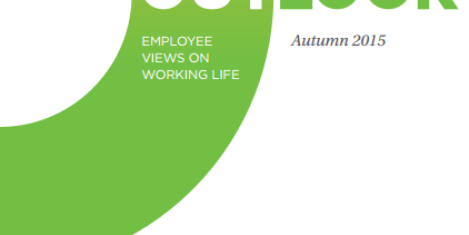November 1, 2015
UK productivity undermined by rule-heavy workplaces, claims report 0
 Employers can unleash the productivity of their workers by allowing them more scope to use their initiative, create more stimulating work and reduce the burden of unnecessary rules and procedures, according to a new report which considers productivity from the employees’ perspective. The latest Employee Outlook Survey from the Chartered Institute of Personnel and Development (CIPD), surveyed over 2,000 UK employees, asking what enabled them to be most productive. The most common responses were interesting work (40 percent), being able to use their own initiative (39 percent) and being given tasks which complement their skills (25 percent). On the other hand, the most common hurdles to employee productivity were unnecessary rules and procedures (28 percent), not having the resources available to do their jobs (28 percent) and office politics (24 percent).
Employers can unleash the productivity of their workers by allowing them more scope to use their initiative, create more stimulating work and reduce the burden of unnecessary rules and procedures, according to a new report which considers productivity from the employees’ perspective. The latest Employee Outlook Survey from the Chartered Institute of Personnel and Development (CIPD), surveyed over 2,000 UK employees, asking what enabled them to be most productive. The most common responses were interesting work (40 percent), being able to use their own initiative (39 percent) and being given tasks which complement their skills (25 percent). On the other hand, the most common hurdles to employee productivity were unnecessary rules and procedures (28 percent), not having the resources available to do their jobs (28 percent) and office politics (24 percent).




































September 18, 2015
Majority of workers go into the workplace when they should be off sick 0
by Sara Bean • Comment, News, Wellbeing, Workplace
Debates around presenteeism tend to revolve around staff checking their emails while on holiday, but another potentially more destructive behaviour is that of the worker who reckons they’re so indispensable they insist on coming into the workplace when they’re ill. In a recent survey, 89 percent of workers said they had gone into work when they were not well, which is why it is hardly surprising that almost three quarters (71 percent) of employees have reported catching an illness from a sick colleague. According to the research by Canada Life, almost a third (32 percent) said their workload was too great for them to take time off for illness, and 80 percent would not take time off for stress-related illnesses. Employees were also worried about being perceived as lazy (13 percent), inconsiderate (10 percent) and weak (10 percent) if they took time off for a short-term illness.
(more…)